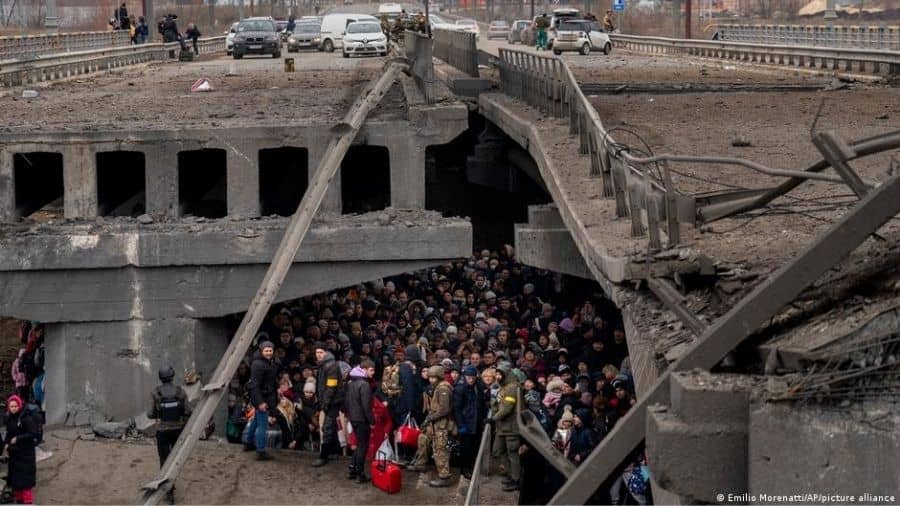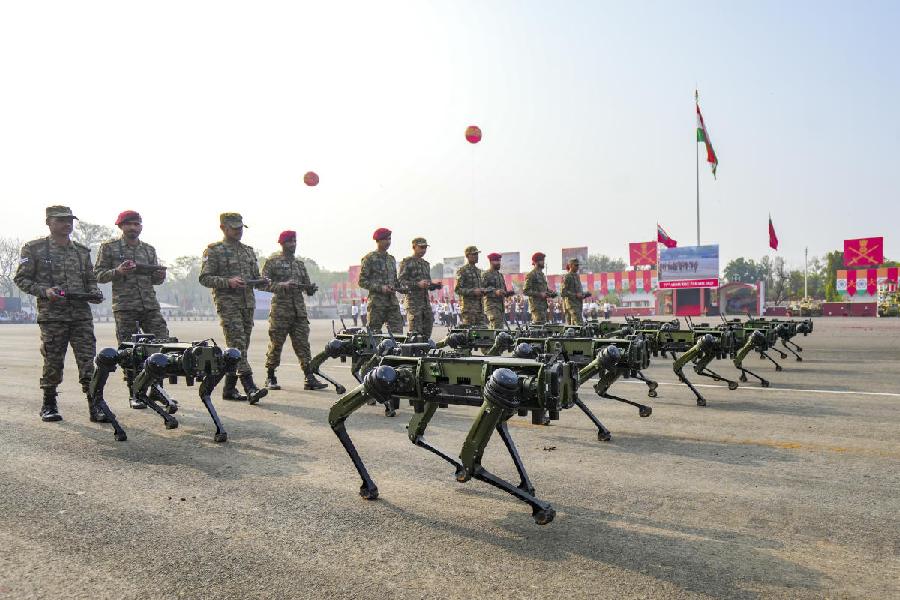For days, Roman Naumenko and his neighbours at the Pokrovsky apartment complex outside Kyiv had been watching from a few short miles away as Russian forces tried to take over a nearby airport.
“I saw helicopters that were firing, coming one after the other,” he said. “It was a huge shock. I couldn’t believe it was real.” Residents would stand outside their buildings filming the destruction with their cellphones.
Each day, Russian forces drew closer and closer to the apartment complex. On March 3, one of the buildings was directly hit by a missile. More than 150 families were still in the 14-building residential complex at the time, a building manager told The New York Times.
And then, later that same day, troops were literally at Naumenko’s doorstep.
“We saw the Russian infantry on the security camera of our building,” he said. “From that moment, the Russians stayed.”
They made around 200 residents stay too, holding many of them hostage in the basements of their own buildings, forcing them to hand over their phones and taking over their apartments. Others were able to avoid detection but still were essentially prisoners in their own homes as Russian forces moved into the buildings, which had housed 560 families, and took up sniping positions.
The Times interviewed seven residents of the Pokrovsky apartment complex in the town of Hostomel, about 10 miles northwest of Kyiv. All experienced the assault and the captivity firsthand before finding ways to flee. Using their accounts, along with footage from security cameras and cellphones, The Times was able to piece together what it looked and felt like as Russian forces closed in.
“It was really scary,” said Lesya Borodyuk, a 49-year-old resident, tearing up at one point as she spoke. “I wrote to my daughter. I was saying goodbye to her. I told her that probably we will be bombed now.”
Outside in the parking lot, security cameras showed at least a dozen Russian troops and infantry fighting vehicles. Soldiers shuttled heavy machine guns and forced a man inside a building at gunpoint.
Ksenia, who asked to be identified only by her first name, watched with her husband and children from their second-floor window as Russian forces arrived at their building.
“We didn’t know what could happen to us,” she said. “It was just a total state of fear.”
One group of soldiers used rifles to smash open the front door of an apartment building. Once inside, they entered the elevator and destroyed its security cameras. In some buildings, soldiers went floor by floor tearing doors off hinges and raiding apartments, residents said.
Within a few hours, according to the seven residents The Times spoke to, Russian soldiers had seized the entire complex and trapped close to 200 civilians inside various buildings.
“People were kicked out of the apartments,” said Elena Anishchenko, who was planning to celebrate her 33rd birthday with neighbours the day the soldiers arrived. “They didn’t ask anyone anything, they would just tell them to go to the basement.”
Many of the residents had their phones and laptops confiscated or destroyed.
“They told us — ‘Don’t be mad at us, but if we find your phone, you will be shot on the spot,’” Anishchenko said.
Cut off from the outside world, Anishchenko said she couldn’t read the news or speak to her family.
Some residents like Ksenia were able to remain in their homes — perhaps because she had an infant.
Others went unnoticed. Naumenko and his wife hid on the seventh floor of their building. He still had his phone, which he would turn on once a day to text his family that he was still alive.
Relatives in agony
Friends and relatives of those trapped in Pokrovsky were in agony. In chat groups and via text messages, they had seen clips and screen shots of Russian soldiers as they seized the complex. Then the messages from their loved ones just stopped.
Iryna Khomyakova, a resident’s daughter, saw the closed-circuit television footage of the soldiers entering the elevator. Worried, she called her mother, who said that Russian soldiers had just entered the building and that she was forced with others into the basement.
New York Times News Service











